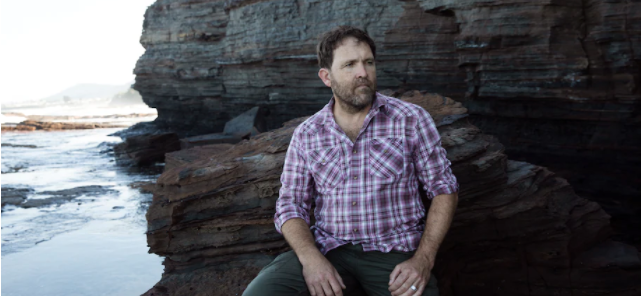||| FROM WASHINGTON POST at request of Orcasonian reader |||
Saul Griffith has a plan to combat climate change while creating millions of new jobs. It boils down to two words: “electrify everything.”
The Australian American inventor is widely credited with popularizing the phrase, which refers to replacing every gas-powered cooktop, furnace and water heater with electric versions that are better for the planet and people’s health.
The Washington Post previously spoke with Griffith, who won a MacArthur “genius” grant in 2007, as part of our Climate Visionaries series last year. The Climate 202 caught up with Griffith over Zoom this week about recent developments in U.S. climate politics and policy, including the uncertain fate of President Biden‘s climate agenda in Congress and what it means for the nation’s climate goals.
The following Q&A has been lightly edited and condensed for clarity:
Climate 202: What do you mean by “electrify everything”?
Griffith: If we truly want to get to net-zero emissions, we can’t make enough biofuels to do it. We can’t do enough carbon sequestration to do it. We have to focus on what’s actually going to work, which is electrifying all of our end uses — cooking, driving and heating your home — and powering them with emissions-free electricity from nuclear or renewables.
Climate 202: During the State of the Union, Biden argued that the climate provisions in his Build Back Better agenda would cut costs for families. Will that argument resonate with Americans?
Griffith: I’ve been an advocate of that argument for a long time. I absolutely believe the economics are in favor of climate action. The average American household could be saving $2,000 to $3,000 by 2030 through electrification. That’s because driving an electric car a mile costs you 2 or 3 cents; driving a gas car a mile costs you 20 cents. Having a hot shower with an electric heat pump costs you 20 cents; having a hot shower with gas costs you 60 cents.
Climate 202: Build Back Better has stalled in the Senate amid opposition from Republicans and Sen. Joe Manchin III (D-W.Va.). Did Democrats make any missteps here?
Griffith: I think it’s unfair to solely blame Joe Manchin, although there is a lot of culpability there, and he obviously has some ties to the coal industry that present a major conflict of interest. You can also add [Sen. Kyrsten Sinema (D-Ariz.)] to the list. But I think Democrats failed in a couple of ways before this even began.
Democrats didn’t win a true governing majority in the election. Not having 52 or 54 or 56 seats in the Senate is quite a problem. It’s bigger than the Joe Manchin problem, which everyone knew about before negotiations over Build Back Better began.
The other problem — and this is an unpopular opinion — is that the rollout of the Green New Deal and the intermingling of social policy and climate policy was unpopular from the beginning with all but that corner of the Democratic Party. So this is a spectacular case of overly complex, overly broad legislation that is difficult to pass, instead of clean, simple climate legislation that people can understand and pass and then do the social issues later.
Climate 202: If Congress fails to pass the climate provisions in Build Back Better, does America still have a shot at meeting Biden’s goals of cutting carbon emissions 50 to 52 percent by 2030 and reaching net-zero emissions by 2050?
Griffith: If you take a very cold-eyed view, we’re nowhere near those goals. The U.S. is so far off target that you have to put your hope for dramatic climate action in some other part of the world, not America.
**If you are reading theOrcasonian for free, thank your fellow islanders. If you would like to support theOrcasonian CLICK HERE to set your modestly-priced, voluntary subscription. Otherwise, no worries; we’re happy to share with you.**







